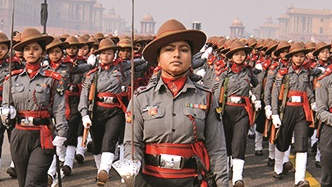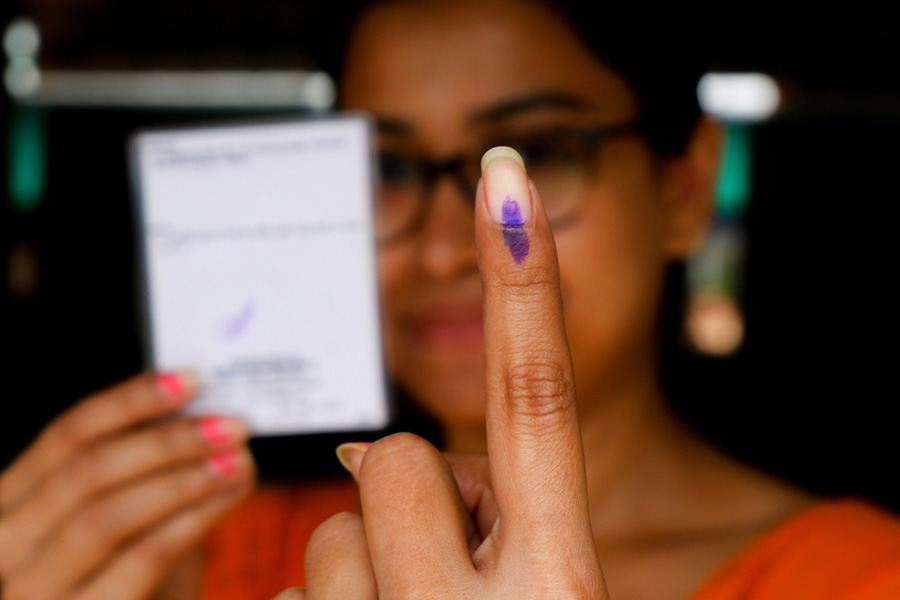Sir — In a major and long overdue step in the right direction, the Centre has issued a formal letter granting women officers permanent commission in the Indian army. Having this right granted to them has been a long and difficult battle for women; it was way back in February that the Supreme Court ruled that women should be considered for command roles. While the Centre has finally taken the step, we cannot forget that it has done so quite reluctantly. It had argued in no uncertain terms against putting women in positions of authority in the armed forces or granting them permanent commission. Moreover, its arguments were based on spurious grounds — one of them was that male officers would be unwilling to take orders from a woman.
It is not hard to believe that personnel in the army, which already has a deeply skewed gender ratio in favour of men, would be reluctant to accept women in positions of power. Armymen, too, are products of the Indian society, which is well known for its deep biases against women. It is then the task of the State and the armed forces to conduct sensitization programmes for army personnel, so as to root out the embedded prejudices in their minds. They must learn to view women officers not just as their equals but as valuable contributors in roles traditionally reserved for men.
Angad Kapur,
Delhi
Sir — Reading about permanent commission being granted to women officers in the Indian army almost felt like a personal victory for women in the country. Like all our rights, this one, too, was hard won. Women have traditionally played important roles in warfare and strategy; their capabilities to be in command roles cannot be ignored. It now remains to be seen how welcome male officers make their women counterparts and superiors feel.
Aparajita Sen,
Calcutta
Boxed in
Sir — It was interesting to read that the Jharkhand cabinet has approved the Jharkhand Contagious Disease Ordinance, under which people caught violating Covid-19 restriction measures can be jailed for up to two years and attract a penalty of up to Rs 1 lakh. The perceived strictness of the punishment might seem necessary given the flagrant manner in which lockdown rules are being flouted all over the country. However, would not imprisoning people cause further crowding in our already-cramped jails? And will that not hasten the spread of the infection? One wonders whether these factors were taken into account while deciding upon the penalty.
Ankita Jha,
Ranchi
Rude shock
Sir — The news report, “Hospital visit bares scary picture” (July 22), was alarming to read. It is a matter of grave concern that such a dangerous process of delivering Covid-19 test results are reportedly being followed at M.R. Bangur Hospital, which is a government-run hospital now designated to treat Covid-19 patients. A Calcutta resident who went to the hospital to get himself tested for Covid-19 revealed that an individual in personal protective gear was calling out names and handing out test reports. Shockingly, many people who had tested positive for the coronavirus merely collected their reports on their own and left. The person delivering the test results was not seen giving them any instructions about the next steps: whether they ought to stay in home isolation, or how they should return home. The eye witness also reported that a woman who had allegedly tested positive was spotted ordering tea and drinking water from a plastic jug at a tea stall.
The report exposes the extreme callousness of the hospital administration and state government officials. With the virus spreading at an exponential rate, the need to isolate Covid patients and prevent them from coming into contact with other people is of utmost importance. How is the illness to be stopped in its tracks if it is treated like a non-communicable disease, that too by medical institutions? How can Covid-positive patients be allowed to mingle freely with others and pass on the infection? These lapses must be punished.
Jahar Saha,
Calcutta











